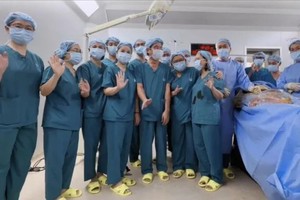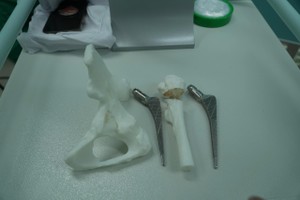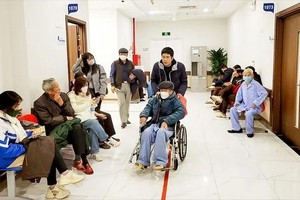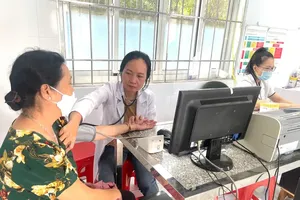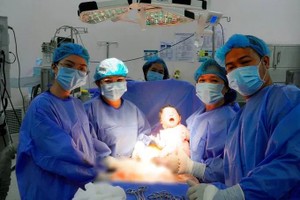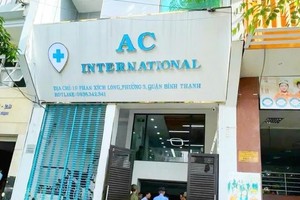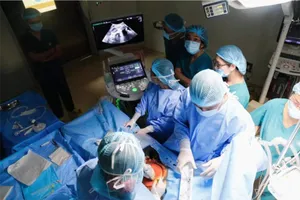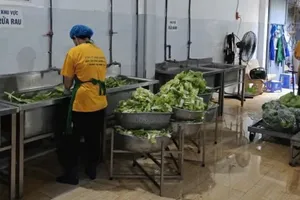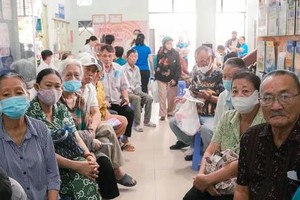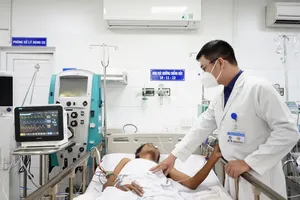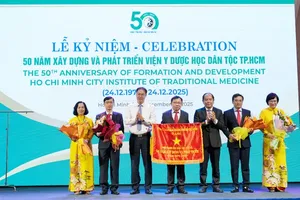
The construction commences on the first plasma-based biological products factory in Ho Chi Minh City high-tech park, marking a significant milestone for the domestic pharmaceutical industry.
Phu Chi Dung, the Director of the Ho Chi Minh City Hematology and Blood Transfusion Hospital, stated that this facility serves as the primary institution in the Southern region for the treatment of hematological disorders, accommodating approximately 70,000 to 80,000 patients annually.
He emphasized the hospital's significant reliance on human plasma-derived products, including Albumin, the vital protein component of serum; Gammaglobulin, essential for immune function; and coagulation factors VIII and IX, crucial for blood clotting.
Due to the absence of a domestic plasma-based biological products factory, Vietnam relies on imports for these essential medications, resulting in high costs for both patients and the healthcare system.
In addition to Ho Chi Minh City Hematology and Blood Transfusion Hospital, the three children's hospitals in Ho Chi Minh City also need to import hundreds of thousands of plasma products each year to treat millions of children with infectious diseases such as dengue fever and hand, foot and mouth disease.
The treatment for a single child with hand, foot, and mouth disease can require 10-15 vials of Gammaglobulin, incurring a substantial cost of approximately VND50 million, stated Dr. Trinh Huu Tung, Director of Children's Hospital 2. Furthermore, the reliance on foreign partners for the import of plasma-based biological products during significant outbreaks poses a critical concern. This dependence can lead to supply shortages, potentially jeopardizing patient care, particularly in life-threatening situations where Gammaglobulin is essential.
According to the Ministry of Health, the demand for plasma and plasma fraction products for treatment in Vietnam is very huge. Normally, after voluntary blood donation programs are launched, about 2 million units of blood are collected from voluntary blood donors (each unit corresponds to 250ml of whole blood) nationwide.
Plasma products are made from blood or after separation by an automatic separator, frozen to -25 degrees Celsius or colder to preserve most of the clotting factors. Blood is separated into many products, the most commonly used are red blood cells and platelets.
However, in Vietnam, blood after separation from whole blood is only used in its raw form, such as frozen plasma or fresh frozen plasma, to transfuse to patients in the treatment of certain diseases. The application of this plasma source within Vietnam is not comprehensive, and it must be disposed of if not fully utilized. This represents a significant waste. As production capabilities are not yet established, the country has to expend substantial foreign currency annually to import plasma fraction products for local medical facilities’ treatment.
A plasma biological products factory has been broke ground in the High-Tech Park of Ho Chi Minh City. Talking about this, Associate Professor Nguyen Quang Tung, Deputy Director of the National Institute of Hematology and Blood Transfusion, assessed this as an important turning point for the domestic pharmaceutical industry. When put into operation, the factory will initially separate a number of plasma components that are widely used.
Associate Professor Dr. Nguyen Thanh Hung, Director of Children's Hospital 1, expressed his optimism about the establishment of a plasma biological products factory in Vietnam. He highlighted that this initiative represents a crucial advancement for the healthcare sector. It is anticipated that the factory will lead to a reduction in prices by 50 percent to 60 percent compared to imported products, which would alleviate the financial burden on hospitals and provide substantial benefits to patients, thereby easing economic concerns and fostering confidence in their treatment.
Binh Viet Duc Company Limited (BIVID) is building a plasma biological products factory complex in the High-Tech Park, Thu Duc City, Ho Chi Minh City. The complex includes a plasma fractionation biological products factory; a vaccine and insulin production factory; anesthetic and anesthetic drug production factory; and a cancer treatment drug production factory.
The VND2,700 billion plasma biological products factory complex will make 600,000 liters of plasma per year, not only meeting the treatment needs of 250 million people in the country but also aiming for export.
This solution plays a vital role in securing strategic medical reserves for the nation while ensuring readiness to respond to epidemics and natural disasters. It aims to reduce reliance on imported pharmaceuticals and advance toward full medical self-sufficiency, aligning with the Government's policies and objectives for domestic production and supply of pharmaceuticals, vaccines, and biological products.

